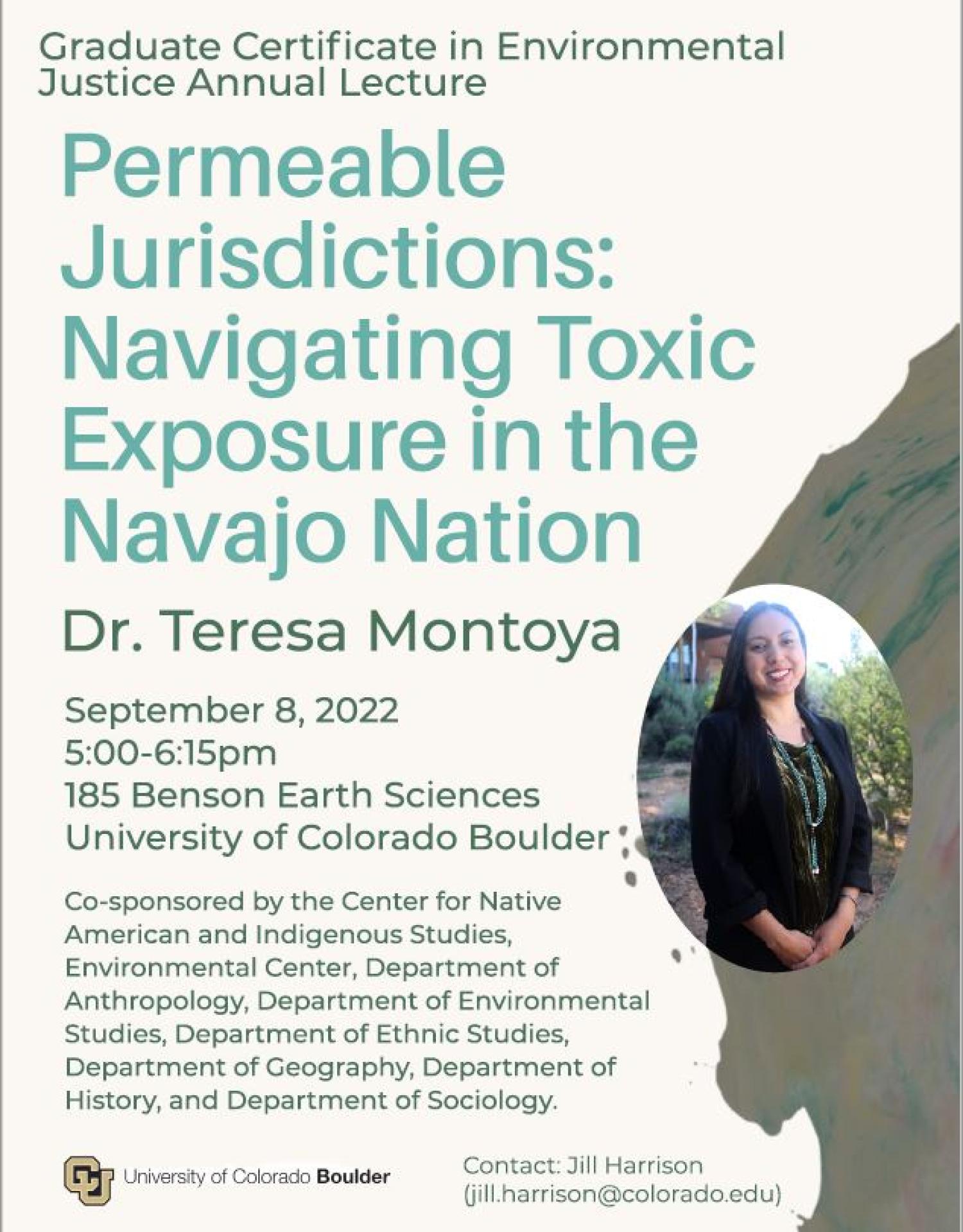Permeable Jurisdictions: Navigating Toxic Exposure in the Navajo Nation on Sept. 8th, 2022

Thursday, September 8th, 2022
5:00-6:15pm
185 Benson Earth Sciences
University of Colorado Boulder
Dr. Teresa Montoya, Asst. Professor of Anthropology at the University of Chicago, will be giving the University of Colorado Boulder’s Environmental Justice Graduate Certificate Annual Lecture on Thursday, September 8, from 5:00-6:15pm in 185 Benson Earth Sciences building. Her talk, "Permeable Jurisdictions:
Navigating Toxic Exposure in the Navajo Nation," is open to the campus community. We look forward to seeing you there!
Talk description: In the 20th century, the Navajo Nation was the site of the largest production of domestic uranium ore to fuel the burgeoning military-industrial complex in the United States. As a consequence of this violent development, there remain over 500 abandoned uranium mines within the Navajo Nation. Though the Navajo Nation has since issued a moratorium on uranium mining on its sovereign lands, the legacy of these extractive practices remains in the form of toxic contamination of its land and water. The ability of the Navajo Nation to protect its citizens from continued exposure, however, is limited by its lack of jurisdiction across discontinuous non-Native land parcels that exist within the geographic boundaries of the reservation. Large areas of the Navajo Nation are so-called “checkerboard” lands, owing to disastrous 19th-century federal land allotment programs. This talk interrogates historic settler colonial land policy through the analytic of “permeability” to theorize the ongoing challenges—and possibilities—for environmental regulation and political mobilization on Indigenous lands today.
Those unable to join us in person can observe through Zoom: https://cuboulder.zoom.us/j/92811532493 Passcode 664463
This talk is co-sponsored by the following units: Center for Native American and Indigenous Studies, Environmental Center, Department of Anthropology, Department of Environmental Studies, Department of Ethnic Studies, Department of Geography, Department of History, and Department of Sociology. Many sincere thanks to these units at CU for helping to make this visit happen.

